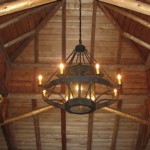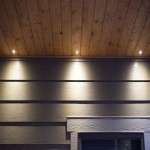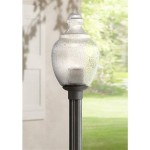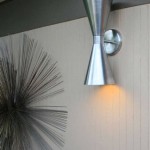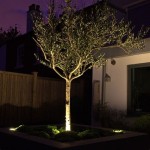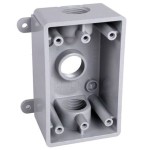Outdoor Light With Remote Sensor: Essential Things to Know
When it comes to outdoor lighting, convenience and security are key. Outdoor lights with remote sensors offer both, making them a popular choice for homeowners. They automatically turn on when they detect motion, providing light when you need it and deterring intruders when you don't.
However, not all outdoor lights with remote sensors are created equal. Here are some essential aspects to consider when choosing one:
Detection Range and Sensitivity
The detection range and sensitivity of the sensor determine how far away and how small of a movement the light will detect. For most residential applications, a detection range of up to 30 feet is sufficient. However, you may want a longer range if you have a large yard or a long driveway.
Sensitivity is also important. If the sensor is too sensitive, it will turn on even for small movements, such as leaves blowing in the wind. This can be annoying and shorten the battery life of the light. Conversely, if the sensor is not sensitive enough, it may not detect movement until someone is already close to your home.
Light Output and Coverage
The light output of the fixture is measured in lumens. The higher the lumen count, the brighter the light. For general outdoor lighting, a light output of around 1,000 lumens is sufficient. However, if you need a brighter light for security purposes, you may want a light output of 2,000 lumens or more.
The coverage area of the light is also important to consider. Some lights have a narrow beam angle, while others have a wide beam angle. A narrow beam angle will focus the light in a specific direction, while a wide beam angle will spread the light over a wider area.
Power Source and Battery Life
Outdoor lights with remote sensors can be powered by batteries, solar power, or wired electricity. Battery-powered lights are the most convenient, as they can be placed anywhere without having to worry about running wires. However, they require regular battery changes.
Solar-powered lights are a good option if you want to avoid battery changes. However, they are not as bright as battery-powered lights and may not work well in areas with limited sunlight.
Wired lights are the most reliable option, but they require professional installation. They are also the most expensive option.
Durability and Weather Resistance
Outdoor lights should be durable and weather-resistant to withstand the elements. Look for lights that are made from sturdy materials, such as aluminum or stainless steel. The lights should also have a weather-resistant rating, such as IP65 or IP66. This rating indicates that the light is protected against dust and water jets.

For Outdoor Motion Sensor Lights Illumination Co

Imaihom 100w Dusk To Dawn Outdoor Lighting With Remote

Battery Powered Motion Sensor Led Outdoor Lights Set Of 2 64r86 Lamps Plus

Remote Pir Detector 180º Sensor Ip44 Rated

Dusk To Dawn Motion Sensor Outdoor Porch Lights With Gfci Waterproof Light Fixture Anti Rust Exterior Wall Mount 3 Modes For House Garage Bulb Not Included Com

Brightown 4500 Lumen Led Flood Light Outdoor With Remote 42w Motion Sensor Security Lights 3 Mode Adjustable 3000k 6500k White Warm Color Adjustment Ip65 Waterproof For Garage Com

Installing A Remote Motion Detector For Lighting Diy

Porch Lights With Gfci Dusk To Dawn Motion Sensor Outdoor 3 Lighting Modes Front Door Waterproof Exterior Light Fixture Outside Wall Sconce For House Patio Garage Com

For Outdoor Motion Sensor Lights Illumination Co

Dusk To Dawn Outdoor Lights Exterior Porch With Gfci Sensor Wall Light Fixture Mount Anti Rust Lantern Waterproof Sconce Outside For House Garage Front Door Com
